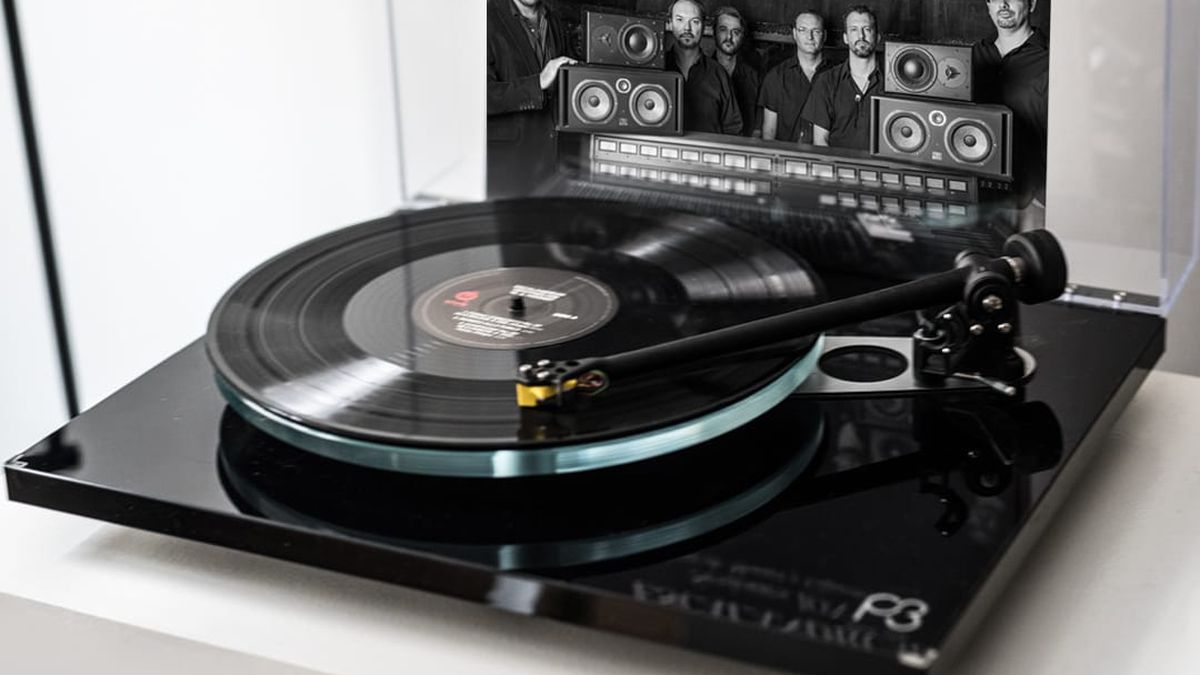“An artist who is listened to a lot on platforms but never plays live will not actually have as many listeners as another who plays 40 times a year,” says Diego Lenger, artistic director of the Disco Club, community that integrates a record label and a music platform that will open a branch in Barcelona with the launch of a series of vinyl albums.
One of the chosen discs is ION Sessions, from the jazz sextet Escalandrum. lead by Pippi Piazzollaseven years after its release on CD. The album is the result of two days of recording, mastered for 140-gram vinyl and on the back cover it has the technical sheet and a precise text by the recording engineer, Osvaldo Acedo.
Regarding the rise of vinyl in times of platforms and the opening of the label’s European headquarters, Lerger explained: “We want to make our artists known in Europe and in the world where there are lovers of original music, in carefully crafted editions that are on a par with the recordings. What better than this album that brings together a universal classic like Mozart with an Argentine composer like Ginastera, permeated by the language of jazz with a Piazzollean essence.” We talked with Lerger.
Journalist: What technological milestones can you highlight in these two decades of the record club’s existence?
Diego Lenger: When we started in 2005, we printed a small magazine, Patoruzú style, which was delivered to members’ homes every month, along with the Record of the Month, and included advertisements for the following month’s records. The rise of the web and the speed with which consumption was acquired made that model obsolete, and from 2010 onwards, information began to appear directly on our website. At the same time, 19 years ago, no one could have foreseen two breakthroughs: that of Spotify, which changed the way we consume music, and the resurgence of vinyl as a desirable physical format. I think that we, like other players in the industry, are following the transformations and trying to adapt to the different habits of music lovers, so to speak.
Q: What criteria did you think of for this release that has Mozart with Ginastera played by the Escalandrum?
DL: This recording was first a CD that came out in 2017 and that we uploaded to the platforms. When we thought about our first series of vinyls made in Europe, and thinking about the European market as well, ION Sessions was in the Top Five of records to be released on vinyl, for several reasons. Firstly, because it is an international repertoire: Mozart and Ginastera are surnames that clearly exceed the local. Secondly, because the type of old-fashioned recording, with only two microphones, puts it in a classic place, it is a crossover that sounds more like modern jazz from the 50s than something current. And thirdly, because Escalandrum is perhaps the most successful Argentine jazz group abroad, with 25 years of experience and tours all over the world.
Q: What can you tell us about the vinyl business, which at first glance may seem to be for music lovers or a niche, but is thriving enough to open an office in Barcelona?
DL: The business is not only about the vinyl format, in fact Club del Disco has a large catalogue of CD editions, and even more extensive in digital format on the platforms. We currently have more than 350 artists within the record label. The reasons for launching the company in the European Union, which was the initial idea of this new stage, and then we decided to do it in the Barcelona area, is that it is a more stable territory from the economic point of view than Argentina. The quality of the physical editions, such as record factories and printing presses, is very high and the costs are not only lower than here but are also more predictable in their price variations. On the other hand, historically Club del Disco exported its physical products to Japan and we thought that covering that demand from Europe. Opening other markets in Europe, America and Asia was going to be easier from the logistical point of view than continuing to do it from Buenos Aires, which is very far from those markets.
Q: Bands and musicians always say that online music consumption has taken away the “magic” and the charge for selling records, making them earn money through live shows and tours. How is it with vinyl? Are they supported by any peripheral business?
DL: Starting from the premise that the music we publish is not massive, that is to say that we do not have artists who fill football stadiums, we have to consider that in reality, both on our scale and on that of the large numbers, all the businesses are “peripheral”. There is nothing central that generates the large flow of money. You have to do everything: the digital, the physical, the merchandising, the dates where the artist is local, the tours, etc. Each thing pushes the other. However, it is like this: if I look at the vinyls that we have already published, those that sell the most vinyls are also those that are played the most, among other things because vinyls are still sold at concerts. Regarding magic, which I do not believe in, if thirty years ago someone had told me that a person in Finland or Malaysia would be able to listen to the recording of an absolutely unknown artist from Viedma, recorded at home, with professional quality and reading the lyrics of his songs simultaneously, I would have thought he was crazy. Music platforms allow this and much more. There are cases of Argentine bands that have been released in other countries, super successful, and that we don’t even know about here. They go on tour, play in theaters, at festivals, release vinyl. And that’s thanks to new technologies. So, as the saying goes, “everyone talks about the fair according to how it goes for them.”
Source: Ambito
I am an author and journalist who has worked in the entertainment industry for over a decade. I currently work as a news editor at a major news website, and my focus is on covering the latest trends in entertainment. I also write occasional pieces for other outlets, and have authored two books about the entertainment industry.




